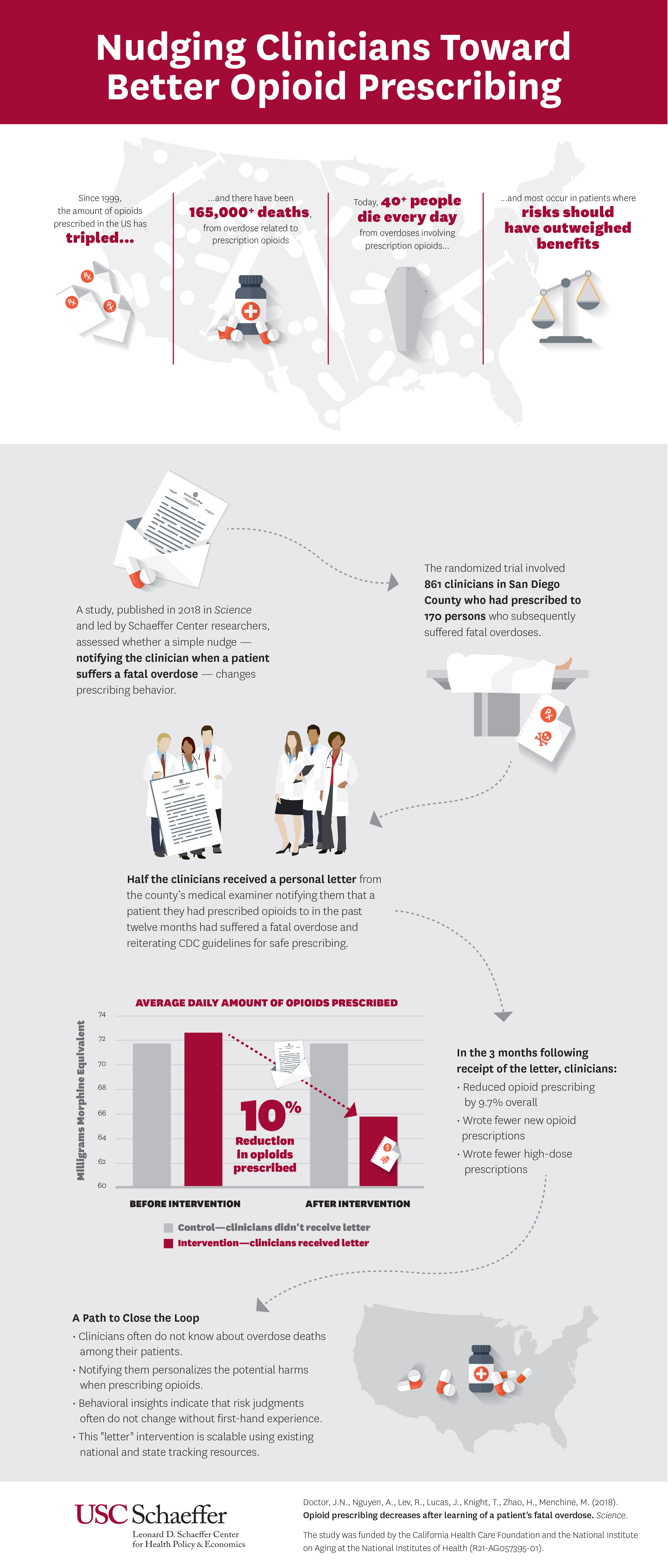As the nation continues to grapple with the opioid crisis, clinicians treating patients struggling with chronic pain play a critical role. Yet, the information prescribers receive about their patients’ outcomes on opioids is often not adequate to make accurate appraisals of drug risks. A new study leverages behavioral insights and psychology to give prescribers personal experience with the risk associated with opioids. The researchers conducted a randomized trial between July 2015 and June 2016 of 861 clinicians who had prescribed to 170 patients who subsequently suffered a fatal overdose involving prescription opioids. Half the clinicians were randomly selected to receive a letter from the county medical examiner notifying them that a patient they had prescribed opioids to in the past twelve months had a fatal overdose. The researchers found that when a clinician learns that one of their patients had suffered a fatal overdose, they reduced the amount of opioids prescribed by almost 10 percent in the following three months. Furthermore, clinicians who received the letter were seven percent less likely to start a new patient on opioids and less likely to prescribe higher doses. The researchers note the results are particularly exciting given that this intervention is scalable nationwide, and that numerous, more traditional state regulations– like imposing mandated limits on opioids– have not been shown to have much impact.
Full study available at Science. A press release about the study is available here.
Citation: Doctor, J., Nguyen, A., Lev, R., Lucas, J., Knight, T., Zhao, H. Menchine, M. (2018). Opioid Prescribing Decreases After Learning of a Patient’s Fatal Overdose. Science. https://doi.org/10.1126/science.aat4595


You must be logged in to post a comment.